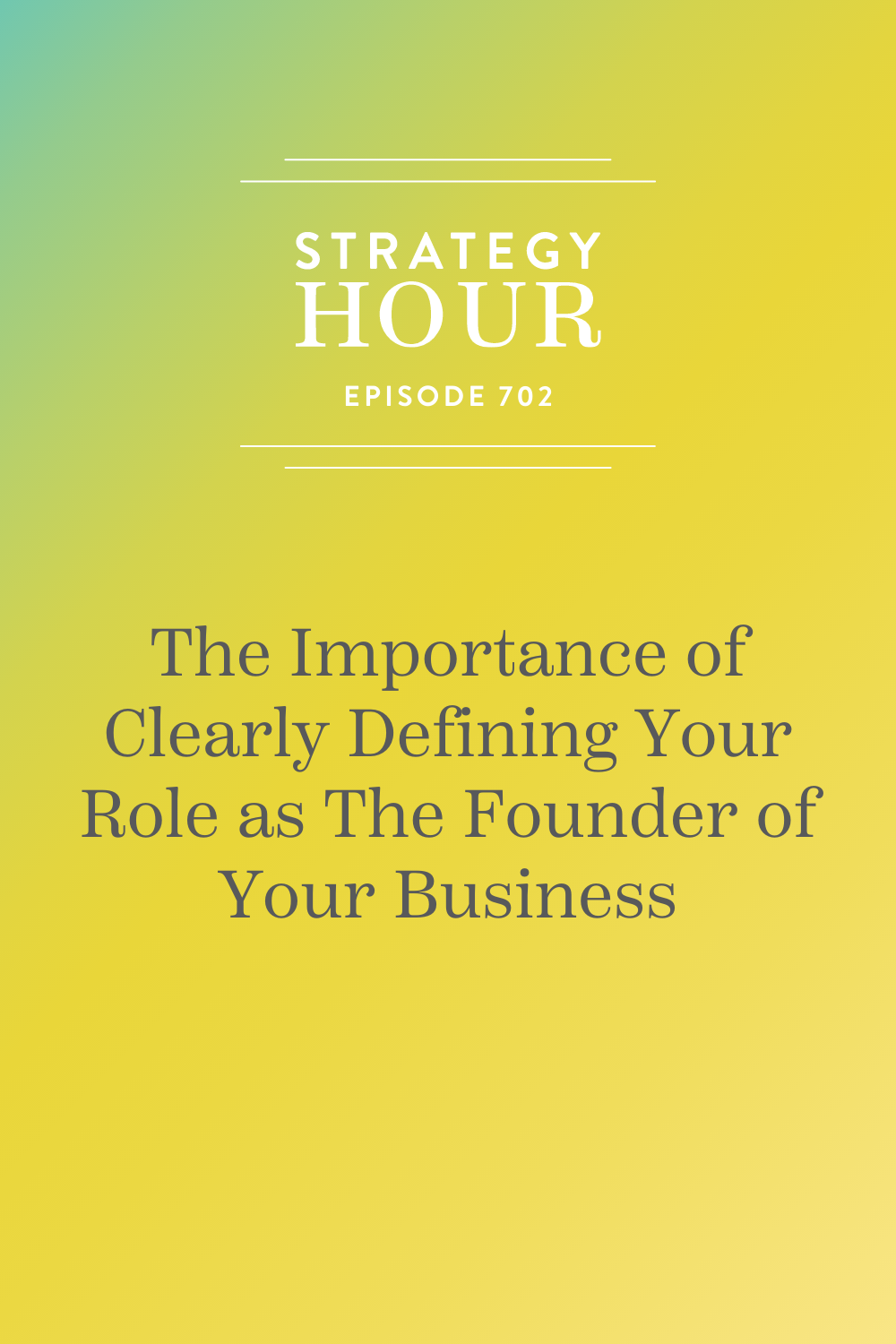The Importance of Clearly Defining Your Role as The Founder of Your Business
Episode 702: Show Notes
Today’s episode is all about how to define your role in your company. As we look towards the start of a new year, we always like to comb through the job descriptions of the people on our team, as well as ourselves. What we’ve noticed is that defining the role of founders and CEOs is something that is often overlooked. So, we are intentional about taking the time to get really clear on the things that we need to do versus the things that we want to do so that we can find a healthy balance between the two!
The Role of the Founder
A founder plays a very specific role in the company and that role evolves as the company grows. When you start a company, you probably think you are going to be doing a lot of things relating to your skill set; designing or selling merchandise or copywriting, for example. In our first year in business, we did a lot of that. But we quickly found out that there is so much more to running a successful company than we ever imagined, and as a founder, you really need to take the reins on the business side of things!
How the Structure of Boss Project Has Evolved
For those of you who don’t know, Emylee started as a 1099 for Abagail. We decided to go into business together but it was simpler to put it under an umbrella that already existed. So, for a few years, Abagail would play the sales role, figure out the deal with the client, and then tell Emylee (the contractor) what she needed her to do. A shift happened in 2016 when we started getting more and more digital sales on our programs and realized we needed to organize things differently.
Navigating the Co-Founder Dynamic
In the early days of the business, we were basically both doing the same job. We were trying to split everything 50/50. To give you an example of how far we took this, we would each write every other Instagram post! It wasn’t until 2019 that we realized that this approach really didn’t make sense and we each took control of the areas that actually best suit us. Our collaborative approach and culture of experimentation are part of the magic of our business, but that doesn’t mean that we each have to be a part of every single aspect of delivery.
Why We Stopped Planning Far Ahead
Everything changes and shifts so often that we have reached a point where we no longer plan anything years in advance because we have no idea what our business is going to evolve into in that space of time. So, we just plan for the year ahead and then we let ourselves be open to whatever comes our way!
What It Means to be a Business Owner
If you want to be a designer or a copywriter or a photographer, go for it! But if you want to be a business owner of a business that is sustainable, that pays you, that opens up a whole new life for you, you can’t just sit in that role forever. And if you are going to be a successful business owner, you need to eliminate the rhetoric of, “If you don’t love it, don’t do it,” from your life entirely because you are going to have to do things that you might not love and that might take you way out of your comfort zone!
Quote This
We stopped two-year, three-year, five-year planning because we can dream and scheme and talk about it, but there’s no reason to put something hard to paper because everything shifts.
Highlights
The Role of the Founder. [0:11:28]
How the Structure of Boss Project Has Evolved. [0:15:30]
Navigating the Co-Founder Dynamic. [0:18:06]
Why We Stopped Planning Far Ahead. [0:25:25]
What It Means to be a Business Owner. [0:28:53]
Today’s Guest:
Abagail & Emylee
The Strategy Hour Podcast
The Strategy Hour Podcast is a twice weekly show hosted by Abagail Pumphrey and Emylee Williams, the founders of Boss Project. Join us for semi-ranty biz conversations for service providers looking to ethically grow their agency businesses. Episodes cover everything from lead generation to leadership mindset to team culture and beyond.
Key Topics:
Founders, Co-Founders, Defining Roles, Project Management, Collaboration




